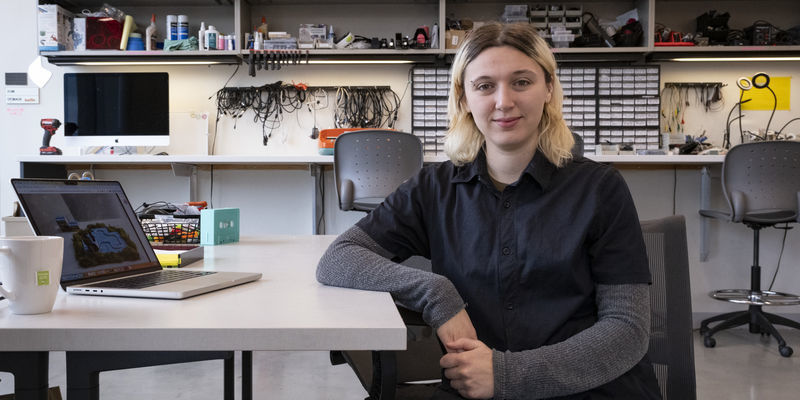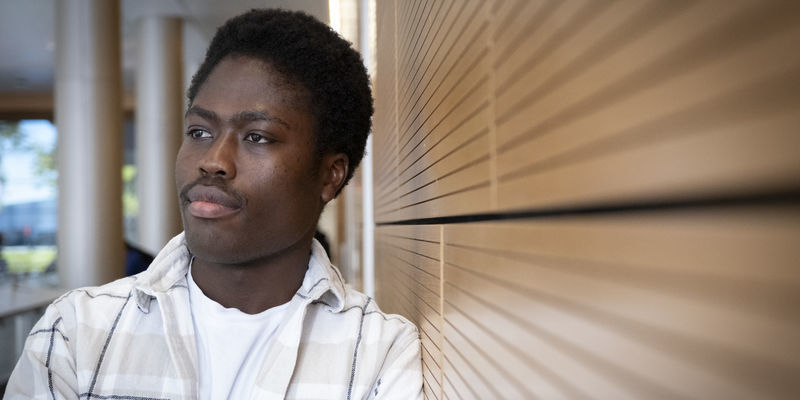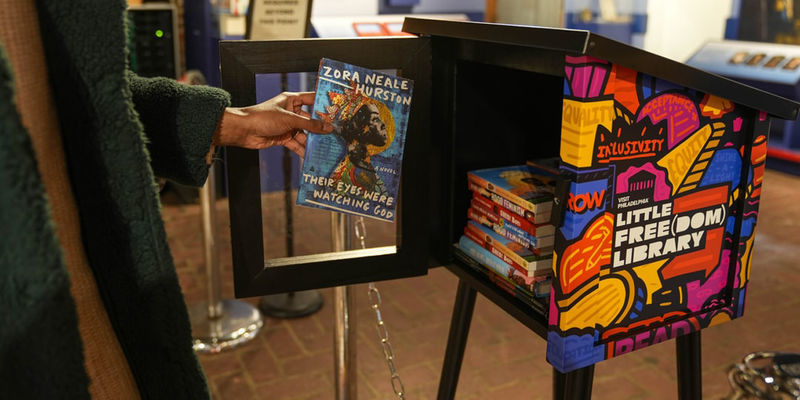At an R1 institution, Temple undergrads lead innovative research
There’s nothing quite like hands-on, experiential learning, which is why so many Temple students are tapping into the university’s expansive research network and getting valuable experience while still in school.
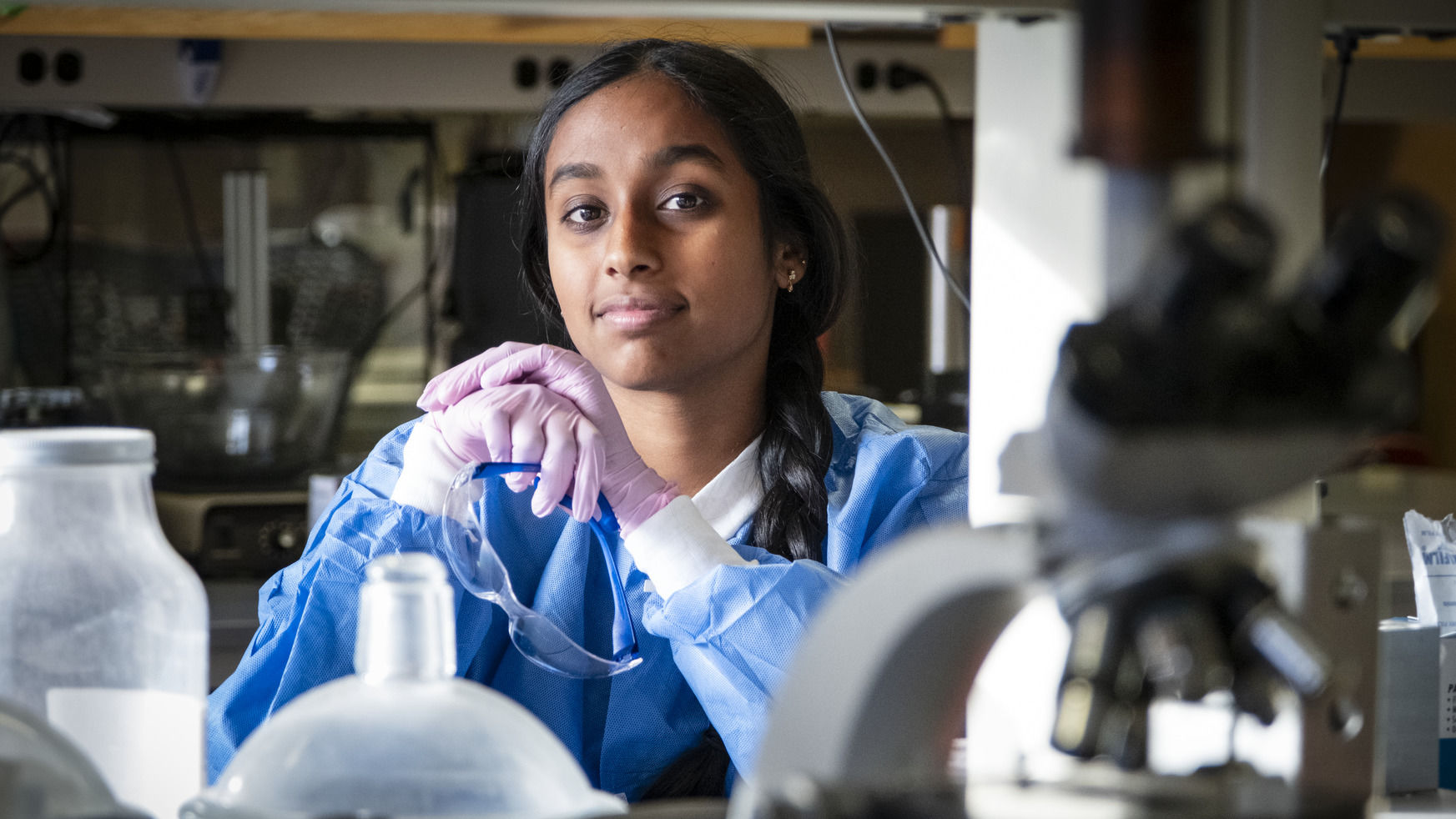
A Temple education starts in the classroom, but for many Owls, it extends into the lab or field, where our students are making important discoveries through innovative research.
For nearly a decade, Temple has been recognized as an R1 research institution by the Carnegie Classification of Institutions of Higher Education. The classification is given out only to institutions that demonstrate the “very high research activity."
The ranking has helped Temple attract accomplished faculty researchers, some of whom are among the most highly cited researchers in their field. These talented faculty bring with them top-tier research opportunities for students—both graduate and undergraduate.
Meet a few of our undergraduate students who are taking advantage of the expansive research scene at Temple.
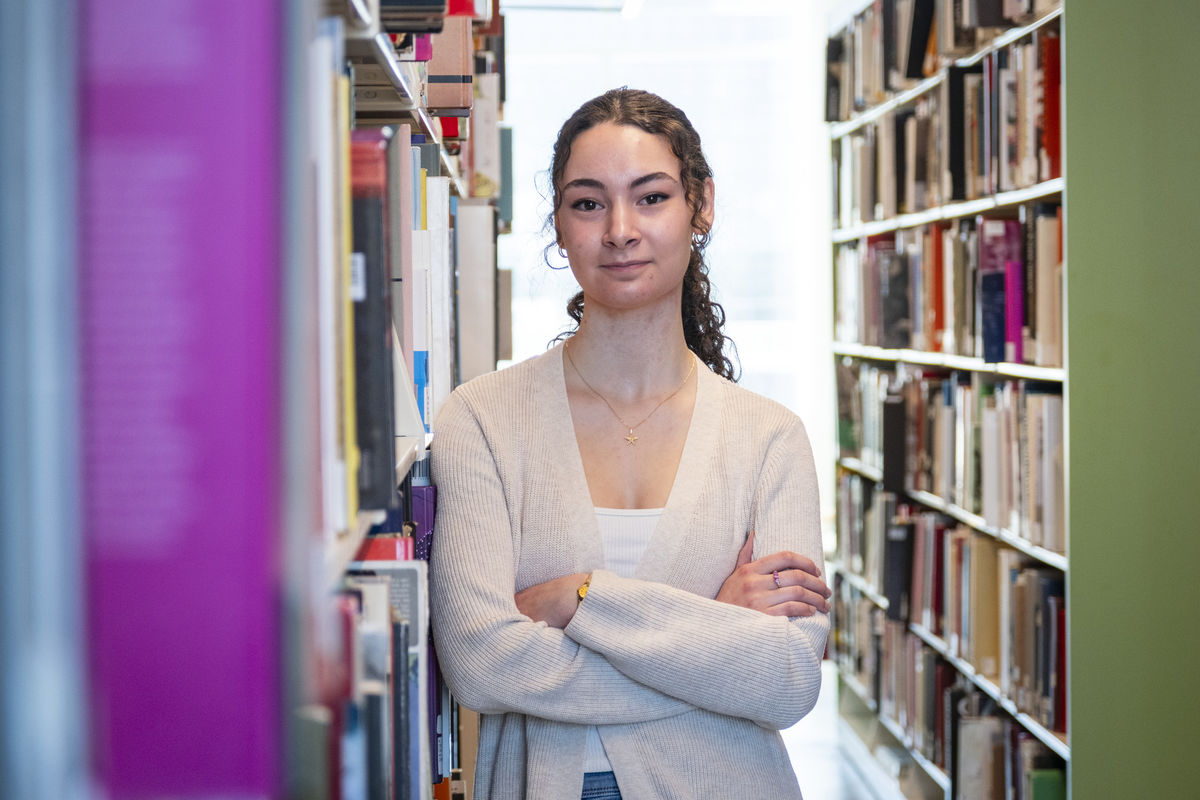
Abby Corcelli
Graduation year: 2025
Major/school: English, College of Liberal Arts
Hometown: Newport, Rhode Island
Research focus: Analyzing patterns of inequality in banned books
As an English major, it should come as no surprise that Abby Corcelli has had a passion for books and reading for as long as she can remember. While at Temple, she has grown increasingly interested in applying her passion to contemporary social justice issues, which has led her to a research team looking for patterns across books that have been banned in recent years by U.S. public schools.
The project is a collaboration between Assistant Professor of English Laura McGrath and Alex Wermer-Colan, interim director of the Loretta C. Duckworth Scholars Studio Makerspace housed in Charles Library. Corcelli is part of a team of undergraduate and graduate researchers responsible for purchasing more than 1,500 literary titles that have been banned. Her team is also enriching metadata for the titles, adding information like author demographics and intended audience. They are using this data to identify trends among books that have been banned and draw conclusions about what kinds of content is considered dangerous or taboo.
“We really wanted to enhance the picture to get a better understanding of what kinds of things are being censored in contemporary conversations around schools,” she said.
Corcelli knew when she came to Temple that she wanted to get involved in research, but as an English major, she wasn’t sure what kinds of opportunities would be available. She never could have anticipated the new avenues the work has opened for her.
“This project is really the kind of thing I was hoping to do coming to a big institution like Temple,” she said. “Especially in terms of the interdisciplinary work. I love the work I do as an English major, but coupling that with other skills like modeling and data science opens me up to a lot more opportunities.”
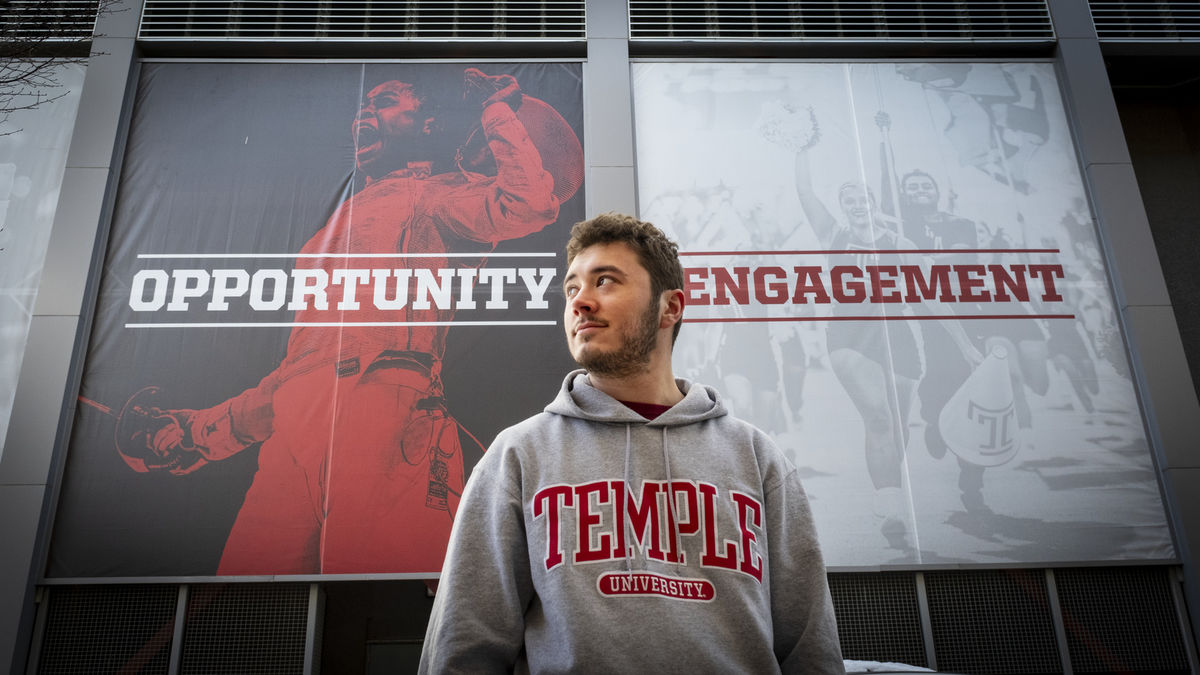
Jacob Bealer
Graduation year: 2024
Major/school: Sport and recreation management, School of Sport, Tourism and Hospitality Management
Hometown: Telford, Pennsylvania
Research focus: Tracking career trajectories of Division I athletic directors
Jacob Bealer wants to make a positive impact on peoples’ lives from the front office of an NCAA or NFL football team. At the School of Sport, Tourism and Hospitality Management, he’s gained a better understanding of how research can play a role in improving peoples’ lives through sport.
Bealer worked with Assistant Professor of Sport and Recreation Management Jonathan Howe to study the career paths of athletic directors at some of the country’s top athletic universities. As part of his research, Bealer performed cluster analyses, which organized athletic directors into groups based on similarities in their backgrounds. Using this data, Bealer was able to draw conclusions about what factors influence an individual’s chances of landing a coveted athletic director role.
“I wanted to see if there were any commonalities between certain groups of people who become athletic directors,” said Bealer, who was formerly the president of STHM’s Sport and Governance Association, a student organization that provides social and professional development opportunities. “Is there a certain path that people follow, which can put them in a better position to become an athletic director?”
His research took him to last year’s College Sport Institute Conference in Columbia, South Carolina, where he presented his findings to some of the sharpest minds in the college sports research world.
“It was an eye-opening experience to present my work to people who are established in academia, rather than peers in class,” Bealer said.
Some of his other research at Temple examined graduation rates of student-athletes. He credits his research projects with helping him continue to be curious and seek out difficult answers about how sports can be a positive factor in peoples’ lives.
“The dark side of college sports is that sometimes the students aren’t taking care of their academics,” he said. “It’s made me interested in player development and curious about how we can set these athletes up to be successful after their playing days are over.”
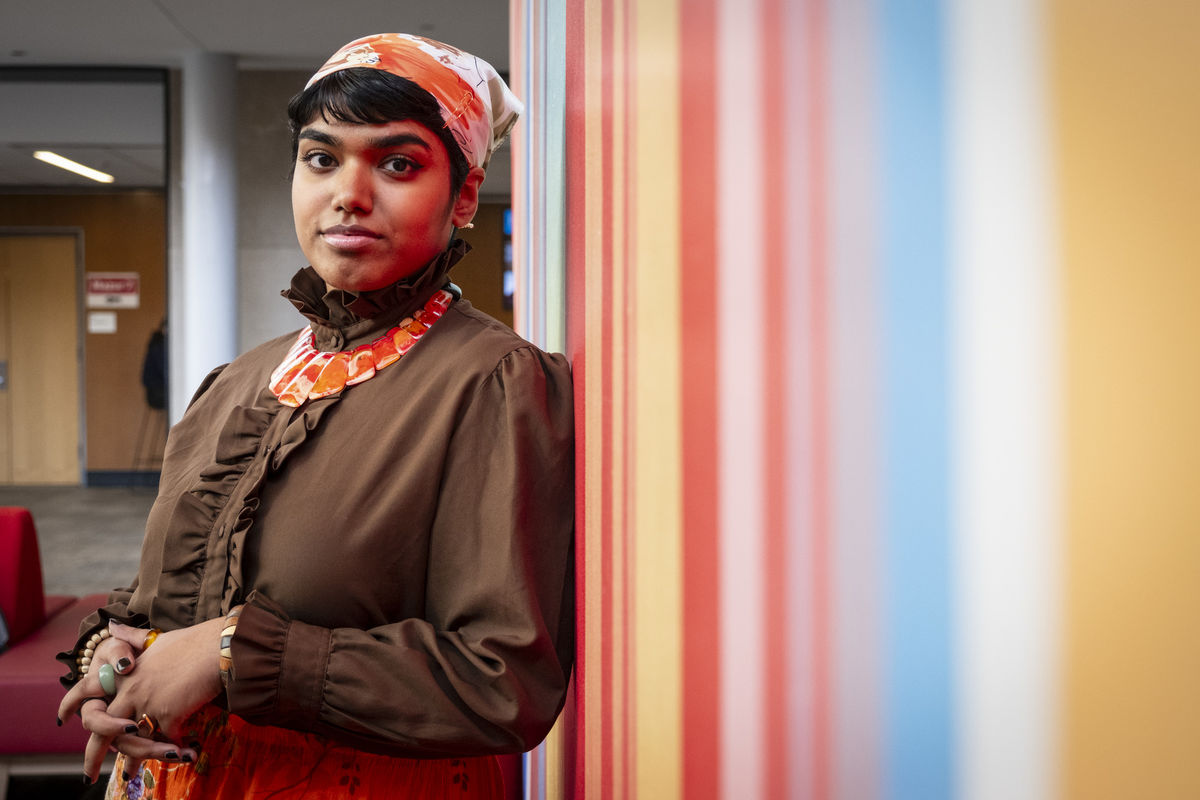
Caroline George
Graduation year: 2024
Major/school: Neuroscience, College of Liberal Arts
Hometown: Philadelphia, Pennsylvania
Research focus: Using fMRI data to explore relationships between fear-related regions of the brain
As a neuroscience major, Caroline George knew that neuroimaging was an area she’d explore at some point in her career. But thanks to a research project she led through Temple’s Creative Arts, Research and Scholarship (CARAS) program, George was able to immerse herself in neuroimaging while still an undergrad.
While working under Professor of Psychology and Neuroscience Ingrid Olson and PhD student Billy Mitchell, George analyzed fMRI data, which comes from a type of MRI used specifically to view brain activity. She used the data to look for similarities in activity among portions of the brain that are associated with fear responses.
The project allowed George to visit and collaborate with a neuroimaging lab in Finland. She also gained valuable experience practicing different analysis methods.
“I had to use software that’s specifically made to analyze fMRI data, and that required a lot more scripting and computer science knowledge,” George said. “I’ve always wanted to learn more about neuroimaging, and what it actually means to look at an fMRI study and do analysis. This project made that research more tangible for me.”
The collaboration with the Finland lab also inspired George to apply for a Fulbright program in the country, and the experience has piqued her interest in exploring the differences between the science community in the United States and abroad.
“It was evident that in Finland, the public feels more safe and secure with the science community,” she said. “That was a really cool thing to see, and it made me want to continue doing research in Finland. What are some things that I can learn from how they do research and implement it when I come back?”
George has also grown interested in the intersection of art and science, and she co-founded the student organization Sci Design alongside her friend and biology major Nala Hamilton, Class of 2024. The group is made up of art and science majors with an interest in science illustration.
“I think it’s really important to show younger students that science is this really creative process with beautiful and interesting visuals,” she said.
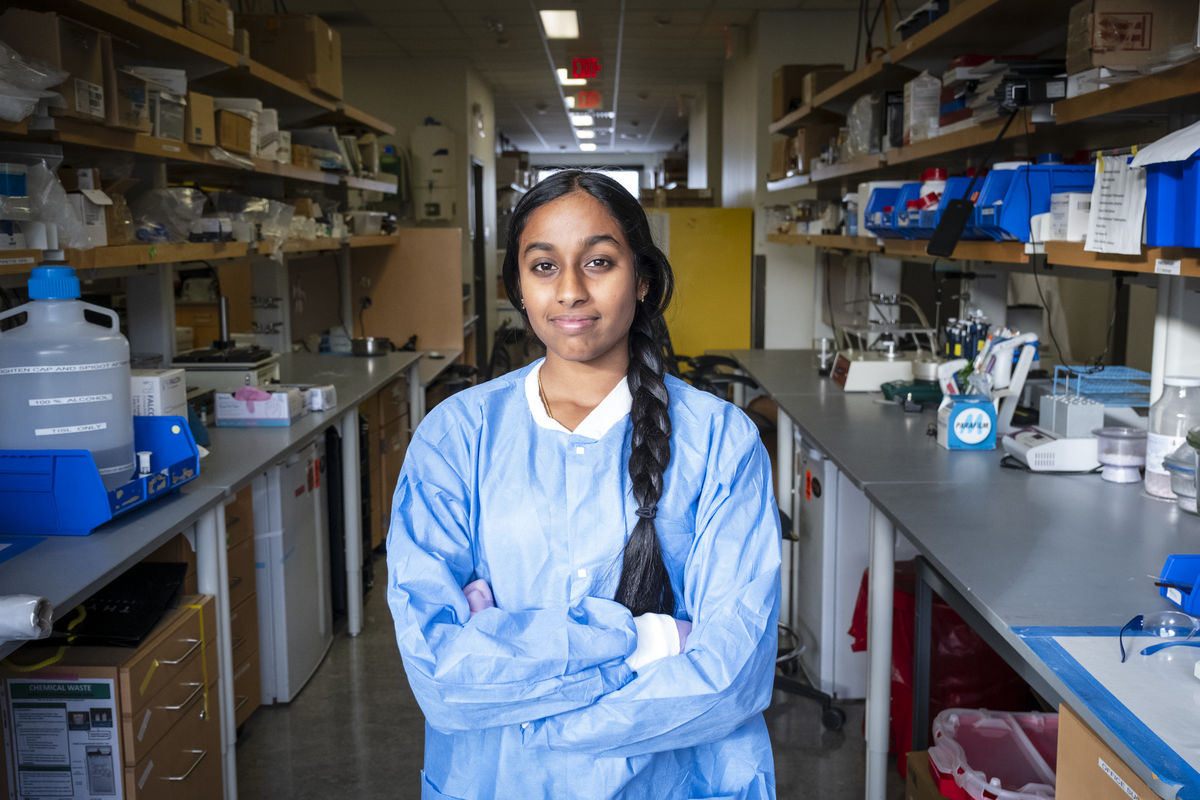
Suruthikha Vijay
Graduation year: 2026
Major/college: Bioengineering, College of Engineering
Hometown: Fairfax, Virginia
Research focus: Evaluating the use of spectroscopy to track protein levels during dialysis
Suruthikha Vijay is no stranger to research. The sophomore bioengineering major has led research projects going back to high school, so she knew when she came to Temple that she’d be spending time working in a lab.
Thanks to the Diamond Research Scholars program, Vijay got involved with a project led by Assistant Professor of Civil and Environmental Engineering Rouzbeh Tehrani. The project involves spectroscopy, which is a technique that examines the different colors or wavelengths absorbed or emitted by substances. Specifically, they are studying whether spectroscopy can be used to accurately track protein levels in the blood during kidney dialysis.
“During dialysis, it’s important that you maintain levels of various proteins that you find in the blood,” said Vijay, who also serves as the treasurer of Theta Tau, Temple’s engineering fraternity. “So, we’re trying to see if spectroscopy could be used to track how these proteins interact with the fibers found in dialyzers.”
The work brought Vijay to the College of Engineering’s Tissue Imaging and Spectroscopy Lab (TISL), where she used microscopes to gather cross-section images of fibers used in dialysis. She’s found the TISL to be full of resources to support her research.
“At Temple, you’re surrounded by your entire research lab when doing your work,” Vijay said. “You have lab meetings every week, you have the opportunity to talk through your project and everybody’s always willing to help out even if it’s not in any way related to their project. It’s just a really collaborative environment.”
For Vijay, research is not only something she enjoys, but something she anticipates she’ll continue doing throughout her career.
“I think it’s interesting trying to discover things that nobody has found before, or even things that nobody has thought of before,” she said. “I also think research is a great way to put into practice the things you’re learning in class. It’s interesting to see everything come together.”
